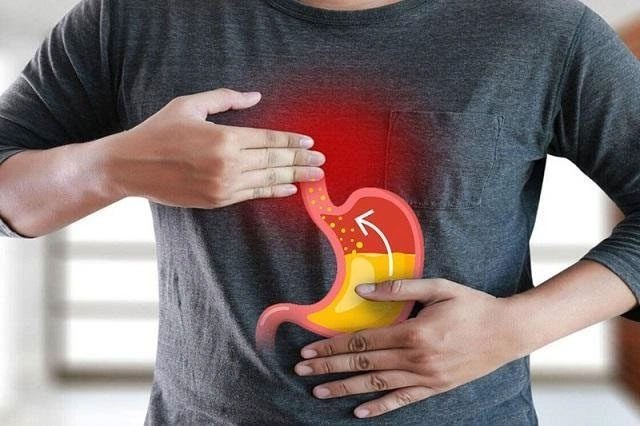When experiencing a sore throat, many people believe it is due to inflammation in the throat area. However, in reality, a sore throat can be a symptom of various underlying causes.
Causes of Sore Throat and Pharyngitis
Unhealthy Lifestyle Habits
Individuals with unhealthy lifestyle habits, such as excessive alcohol consumption, smoking, drinking too many cold beverages, or consuming spicy and fried foods high in fat over an extended period, are major contributors to sore throats and pharyngitis.
Polluted Environment
Many regions today are affected by environmental pollution from factory emissions, dust, and fuels. Consequently, people frequently live in polluted surroundings, which can lead to pharyngitis and persistent respiratory inflammation due to inhaling contaminated air. Patients may also experience mild coughs, dry coughs, or no cough at all.
Job Characteristics
Certain professions are prone to causing sore throats, especially those that require speaking continuously at high volumes for extended periods. For example, singers, teachers, and sales personnel often use their voices extensively, making them more susceptible to pharyngitis.

Sore throat can be a symptom of various underlying causes.
Common Cold
When suffering from a cold, the first symptom is often a sore throat or pharyngitis. This condition is quite common during hot weather or transitional seasons when temperatures fluctuate suddenly or mild infections occur. Patients typically experience sneezing, a runny nose, and chills. Generally, the illness will resolve on its own after a few days if the patient knows how to care for themselves without medication. It is crucial to keep the body warm.
Chronic Pharyngitis
Chronic pharyngitis is a condition characterized by long-lasting inflammation that is prone to recurrence. Patients may only experience mild symptoms such as throat irritation or the need to clear their throat frequently. Sometimes, they may feel dryness and discomfort in the throat without the fever typical of other upper respiratory infections.
In addition to the sensation of something stuck in the throat, patients may experience pain while swallowing, a burning sensation, and coughing fits. Although this condition is not life-threatening, it can be uncomfortable and diminish the quality of life. During this stage, the illness may persist stubbornly and be difficult to treat completely, potentially leading to serious complications such as otitis media, pneumonia, and tonsillitis.
Gastroesophageal Reflux Disease
Gastroesophageal reflux disease (GERD) is a digestive condition caused by excess stomach acid that frequently flows back into the mouth and throat. This condition is common, but symptoms can be hard to identify as they are often confused with typical pharyngitis, making patients feel pain and discomfort that affects their daily lives.
Individuals with GERD often experience symptoms such as acid reflux, belching, heartburn, sore throat, discomfort in the throat area, burning throat pain, and difficulty swallowing.

Discomfort in the throat area, burning throat pain, and difficulty swallowing are among the signs of gastroesophageal reflux disease.
These symptoms can be managed with an appropriate diet or antacid medications. If symptoms occur more frequently (about 2-3 times a week) and are accompanied by more severe complications such as inflammation, ulcers, or difficulty swallowing, it is essential to seek medical attention immediately.
It is important to note that if this condition persists, it could not only worsen pharyngitis but also lead to complications such as sinusitis, otitis media (especially in children), and precancerous conditions of the esophagus (Barrett’s esophagus).
Esophageal Tumors
Individuals with esophageal tumors often experience abnormal cell proliferation or disorders. Therefore, those with this condition frequently suffer from sore throats without accompanying signs of cough or fever.
Patients may notice other symptoms such as hoarseness, difficulty swallowing, and a sensation of something stuck in the throat. Sore throat, coughing up phlegm with blood, are signs of oral cavity or respiratory issues, infections, or cancer. At this point, patients need to seek medical attention promptly for diagnosis and treatment to avoid serious health complications.
Medical Advice
If you have a mild sore throat or pharyngitis, you can use home remedies such as <strong gargling with salt water. Saltwater has antibacterial properties, helping to quickly cleanse the nasal, oral, and throat mucosa. It also helps to thin mucus, allowing for quicker relief in the nasal and throat areas. Gargling with warm salt water at least three times a day can significantly improve pharyngitis symptoms. This method is also very safe for children.
Additionally, it is advisable to drink plenty of warm water as it effectively thins mucus and helps clear it from the mouth and throat. Moreover, drinking warm water when experiencing pharyngitis helps prevent irritation and further inflammation of the throat mucosa. It also balances moisture in the respiratory mucosa, preventing the formation and growth of bacteria, making patients feel more comfortable.
Patients should absolutely avoid alcohol, beer, tobacco, and stimulants when experiencing pharyngitis. Limit the intake of sugary foods, spicy, hard, or fatty foods. Avoid foods that irritate the throat such as sesame, peanuts, and shellfish.
Minimize exposure to allergens such as pollen, pet dander, and polluted environments.
You should wash your hands thoroughly with soap multiple times a day and maintain proper oral hygiene. Additionally, it is essential to balance work and exercise to improve and enhance health.
Maintain regular check-ups every 3 to 6 months to actively monitor and promptly detect any potential underlying diseases.


















































